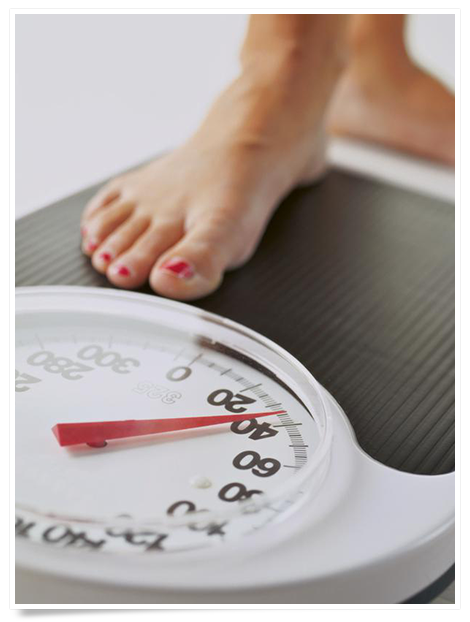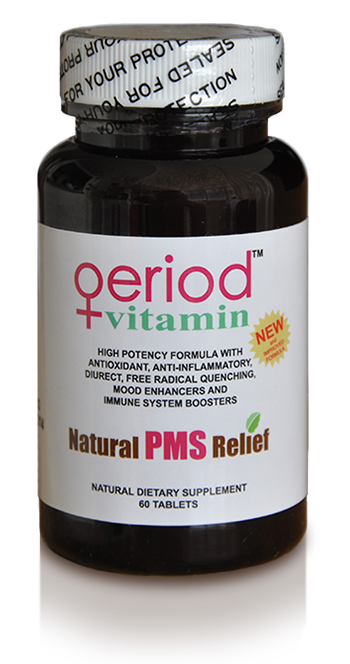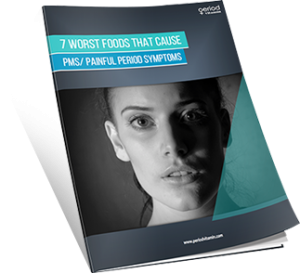Are you tired and frustrated by weight gain during your period?
Are you sick of not fitting in your clothes, feeling self-conscious and just terribly uncomfortable for a week or two every month?
What can be done about weight gain during a period?
How can you prevent or avoid it? What causes it anyway?
It is certainly a frustrating and can be a physically uncomfortable situation for women who struggle with it as a part of pms.
How much is normal weight gain at this time?
 Women can gain from 2-10 pounds of excess weight during their menstrual cycle. It is a fallacy to assume that all that weight gain comes only from fluid and water retention. Many women who experience weight gain during their menstrual cycle also experience food cravings and most give in to them. This adds to the weight gain.
Women can gain from 2-10 pounds of excess weight during their menstrual cycle. It is a fallacy to assume that all that weight gain comes only from fluid and water retention. Many women who experience weight gain during their menstrual cycle also experience food cravings and most give in to them. This adds to the weight gain.
How long does this last? It is also a fallacy to say that the weight gain takes place during the “period”. In fact the weight gain takes place during the first three stages of the menstrual cycle and begins to be relieved during the bleeding ‘period”. So let’s take a look at that menstrual cycle.
Menstrual Cycle
Premenstrual Stage – This stage occurs about two weeks before the bleeding period starts. Many of the symptoms of pms begin in this stage but they are minor and grow more severe in the next two stages.
Follicular Stage – This stage takes place about a week and half before the bleeding period starts. It is in this stage that estrogen floods the body and the uterine lining begins to thicken in preparation for a fertilized egg. Bloating begins in this stage. Bloating is a digestive issue and if bowel movements are impeded and the woman is constipated. Then gas is formed in the digestive system and causes bloating. Ovulation begins at the end of this stage.
Luteal Stage – This stage is about a week or 5 days before the bleeding period starts. The eggs are released into the fallopian tubes during this stage and the hormone estrogen no longer floods the system. It has been replaced by progesterone and the bloating begins to subside here.
Period – This is the time of actually bleeding or shedding of the excessive uterine lining, excessive water, unfertilized eggs and blood. This stage only happens if the woman does not become pregnant at any time in the cycle. With the beginning of the period and the shedding of all the excesses, the issue of weight gain dissipates as well.
Post Menstrual Stage – This is a period from end of bleeding for a week or two. Many women have symptoms at this time that are identical to pms despite the cycle being complete. Weight gain can start all over again in this stage.
Symptoms and Causes of Menstruation Weight Gain
For a lot of women this weight gain can be pre-period (before), during and after (post period) the period stage of their cycle. It often starts with bloating prior to the weight gain. As we know from looking at the menstrual cycle, this bloating comes from gas trapped in the digestive system and from constipation in the first three stages of the menstrual cycle.
For the most part this normal weight gain takes place as a part of premenstrual syndrome. This does not mean that it takes place during the premenstrual stage. Pms can occur and usually does through the first stages of the cycle until bleeding or the ‘period’ begins and it lets up. This means that weight gain can occur in the premenstrual stage, the follicular and luteal stage.
So does everyone gain weight during their cycle? If not why not? There are at least four specific reasons for excessive weight gain during the cycle. Let’s look at those. They include fluid retention, food cravings, bloating and low magnesium.
Why Do You Gain Weight during your Cycle?
Fluid Retention: Also known as water retention, this is one if not the primary reason for weight gain during the menstrual cycle. It is certainly the first thing most people think of as the reason for this weight gain. During the menstrual cycle, the hormonal changes and imbalance caused by first flooding the body with estrogen and next flooding it with progesterone that greatly reduced the estrogen. This is followed by a drop in progesterone.
 Another reason for this water retention can be the difficulty with bowel movements that some women experience during pms. The issue with bowel movements is also tied to the issue of bloat. According to a study done on fluid retention during menstruation:
Another reason for this water retention can be the difficulty with bowel movements that some women experience during pms. The issue with bowel movements is also tied to the issue of bloat. According to a study done on fluid retention during menstruation:
“We report menstrual and mid-cycle patterns of self-reported “fluid retention” in 765 menstrual cycles in 62 healthy women. Self-reported “fluid retention,” commonly described as bloating, is one element of the clinical assessment and diagnosis of premenstrual symptoms.
These daily diary data were collected as part of an observational prospective one-year study of bone changes in healthy women of differing exercise characteristics. Ovulation was documented by quantitative basal temperature analysis, and serum estradiol and progesterone levels were available from initial and final cycles.
Fluid retention scores (on a 0–4 scale) peaked on the first day of menstrual flow (mean ± SE: 0.9 ± 0.1), were lowest during the mid-follicular period, and gradually increased from 0.22 ± 0.05 to 0.50 ± 0.09 over the 11 days surrounding ovulation.
Mid-cycle, but not premenstrual, fluid scores tended to be lower in anovulatory cycles (ANOVA P = 0.065), and scores were higher around menstruation than at midcycle (P < 0.0001). Neither estradiol nor progesterone levels were significantly associated with fluid retention scores. The peak day of average fluid retention was the first day of flow.
There were no significant differences in women’s self-perceived fluid retention between ovulatory and anovulatory cycles.” (Obstet Gynecol Int. 2011; 2011: 138451. Published online 2011 August 8. doi: 10.1155/2011/138451PMCID: PMC3154522 Fluid Retention over the Menstrual Cycle: 1-Year Data from the Prospective Ovulation Cohort Colin P. White, 1 Christine L. Hitchcock, 2 Yvette M. Vigna, 2 and Jerilynn C. Prior 2 ,*
Food Cravings
For many women their glucose readings and messages to the brain are not accurate during the menstrual cycle. For this reason women find themselves craving certain foods and over eating others to cause this weight gain. These food cravings seem to go away as fast as they came. There is also an increase in the women’s metabolism during this time that can cause the food cravings as well.
- Bloating
As mentioned previously, bloat is caused by gas that gets trapped in the intestines and causes abdominal distention and discomfort. This bloat goes away with the start of the woman’s period. It can be caused by constipation as well.
- Low Magnesium
Magnesium levels in the body seem to drop during the premenstrual stage. This in returns means the body produces less insulin. Less insulin means sugar cravings which mean over eating and weight gain.
What If I’m on a Diet?
This whole experience of weight gain during your period can be an extremely frustrating process when you are on a diet. No one wants to gain weight without explanation while dieting. However this weight gain is short lived and nothing to worry about in respect to your diet. You will be back on track very quickly.
Treatments, Remedies and Cures
 Herbal, Natural and Supplements
Herbal, Natural and Supplements
You may want to use a diuretic and you can use a prescription or a natural herbal remedy. Over the counter medications like Pamprin and Midol also contained diuretics .
Calcium is a major player in several types of pms symptoms and certainly it is in this one. Make sure you are getting enough calcium.
Magnesium was addressed previously as seriously effective fluid retention during pms.
- Vitamins
Vitamin B6 is recommended in doses of 100 to 200 mg per day to counteract pms symptoms including weight gain. This is because vitamin B6 reduces the amount of estrogen in the blood and increases the amount of progesterone. This leads to a better hormonal balance and that can affect a few of the major causes of weight gain during menstruation.
Lifestyle
Avoid salt and sodium as it will help with water retention. Avoid caffeine as it will add to tension and food cravings. Avoid alcohol. Warm water with lime juice might be used to reduce fluid retention as it has been proven to do so. Exercise can prevent, stop and get rid of any excess weight gain due to pms. Eat a diet that is made up of lean proteins, vegetables and complex carbohydrates, along with Omega 3 fatty acids. Stay hydrated. It may seem counter intuitive to say drink a lot of water when water retention is one of the prime reasons for this weight gain. But in fact the opposite is actually true.
The more water you drink the more you will pass through in urination.
In conclusion it is very common for women to experience weight gain before, during and after their period and this can be several pounds. There are however very simple ways to rectify this and alleviate the excess weight. If you pick a few of the ideas above you should not have a problem.


